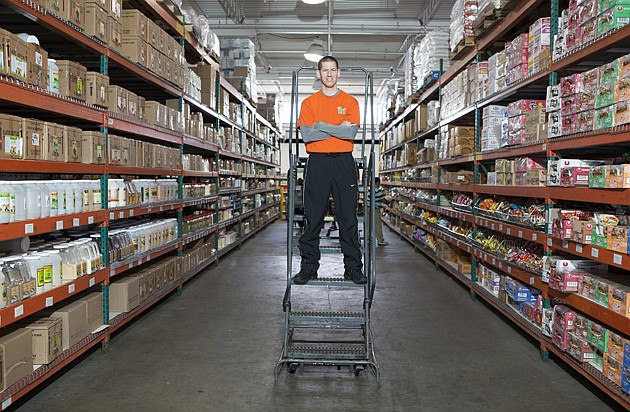- April 4, 2025
-
-
Loading

Loading

One of the few constants at Sanwa Growers is the 32-year-old fresh foods distributor's ability to change with the marketplace.
For years after the company was founded in 1981, Sanwa grew its own produce to sell. Then canker, increasing regulations and a labor shortage made farming more costly, so the company sold its land to developers. For years, the company sold and delivered fresh herbs to Florida's largest grocer until a competitor undercut its price in 2009. So it walked away from what had become an unprofitable niche.
“We have made one adaption after another all the way through,” says CEO Wes Pinkerton, one of Sanwa's newer additions.
A certified public accountant, Pinkerton, 36, joined the company in 2008 to correct mistakes made in the implementation of Sanwa's new accounting software program.
As CFO, Pinkerton spent a year customizing the software and analyzing numbers to find more efficient ways to run the business.
Founders Tony and Connie Leung were watching Pinkerton to see if he was capable of running the business, which peaked at about $100 million in annual revenue prior to the recession.
Over the past few years, Pinkerton, with help from Tony Leung, has made the business more efficient. Sanwa acquired a distribution facility near its Tampa store on Hillsborough Avenue. It already had a farmer's market-type location in Sanford, north of Orlando, and a small walk-up business in Atlanta that primarily delivers to restaurants.
To make up for the loss of business from restaurant owners whose business also dropped in the recession, the Tampa warehouse-type store became more retail friendly for consumers. It also began accepting government-issued food cards.
Pinkerton increased operating hours, tripled the number of checkout registers from two to six, installed a new point-of-sale system that weighs produce and began making smaller portions of produce available for purchase.
Between 2010 and 2012, Sanwa revenue grew by $22 million, or 33.2%, to $88.53 million. Nearly 40% of annual revenue is from the Tampa store.
Late last year, Pinkerton, a St. Petersburg native, was named CEO.
In Tampa, the store's gigantic walk-in cooler has as many as 500 types of produce, from bok choy to kohlrabi and daikon, imported from around the world. The number of items depends on the season.
Pinkerton and Leung's sons, Stanley, the produce manager, and Wesley, who's also in management, turn to Tony Leung when they have trouble finding an item to buy.
“We learn more and more from him,” Pinkerton says. “He's a mad genius when it comes to the produce business.”
Sanwa also sells other items, including meat, canned goods, dairy and paper products.
But Sanwa's niche is selling hard-to-find produce at discounted prices, Pinkerton says. Grocers typically have a 200% markup on produce, he says. Sanwa buys in volume, allowing it to sell for less.
“Anyone can do a good job selling rice and beans and tomato sauce,” Pinkerton says. “It's easy to handle those products. It takes a special attention to detail to handle produce properly.”
The store, which is swamped with shoppers most weekends, caters to families, as well as to restaurant owners.
“One of our biggest challenges is trying to keep everyone happy,” he says. “We have been able to do it. It's our niche.”
Sanwa does that by holding onto employees and thereby improving customer service, he says. Most of Sanwa's employees are full-time and are offered benefits, including paid vacations and holidays, plus health insurance and 40-hour work weeks.
Retaining knowledgeable, dedicated employees is what differentiates Sanwa from its competitors, he says.
As for the Leung's, they remain in semi-retirement — at least for now.
“Tony likes to retire and come back,” he says.
As for addling locations to further the company's growth, Pinkerton says no new retail stores are planned at the moment, but it could be an option in the future.
“We want to take care of the customers we have,” he says. “But we're not ruling it out.”